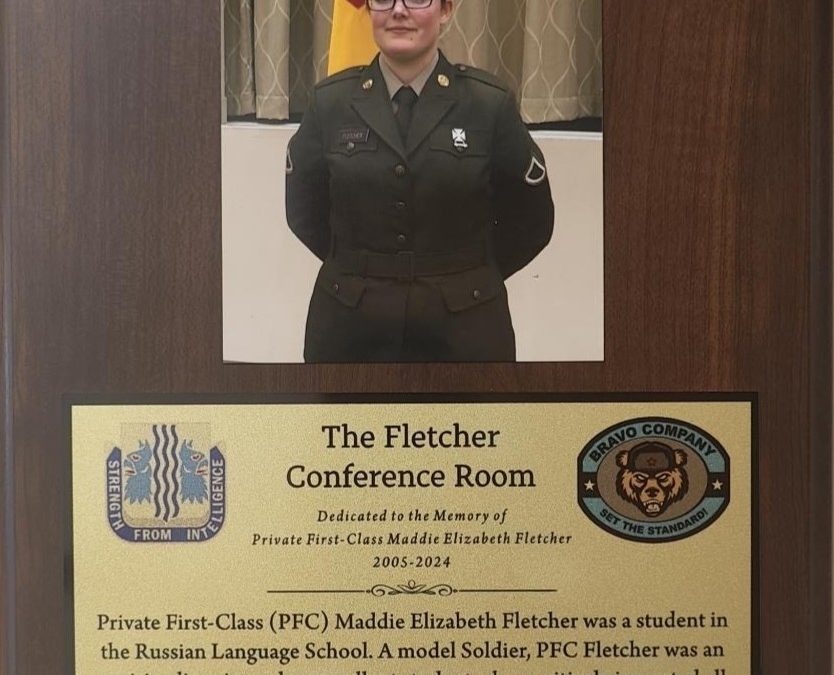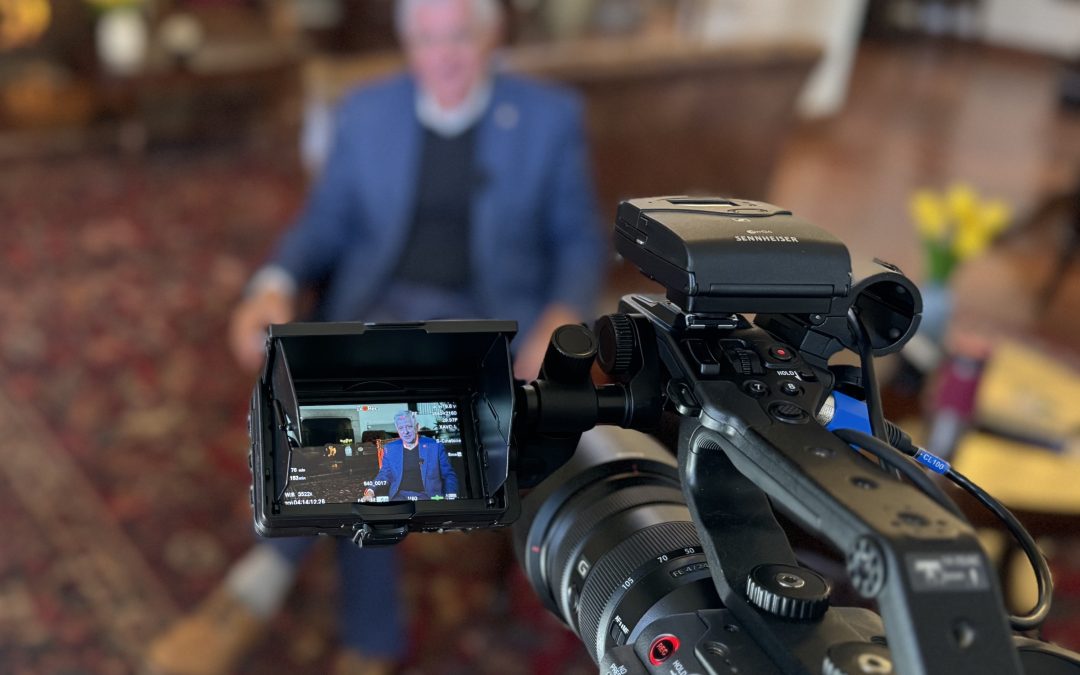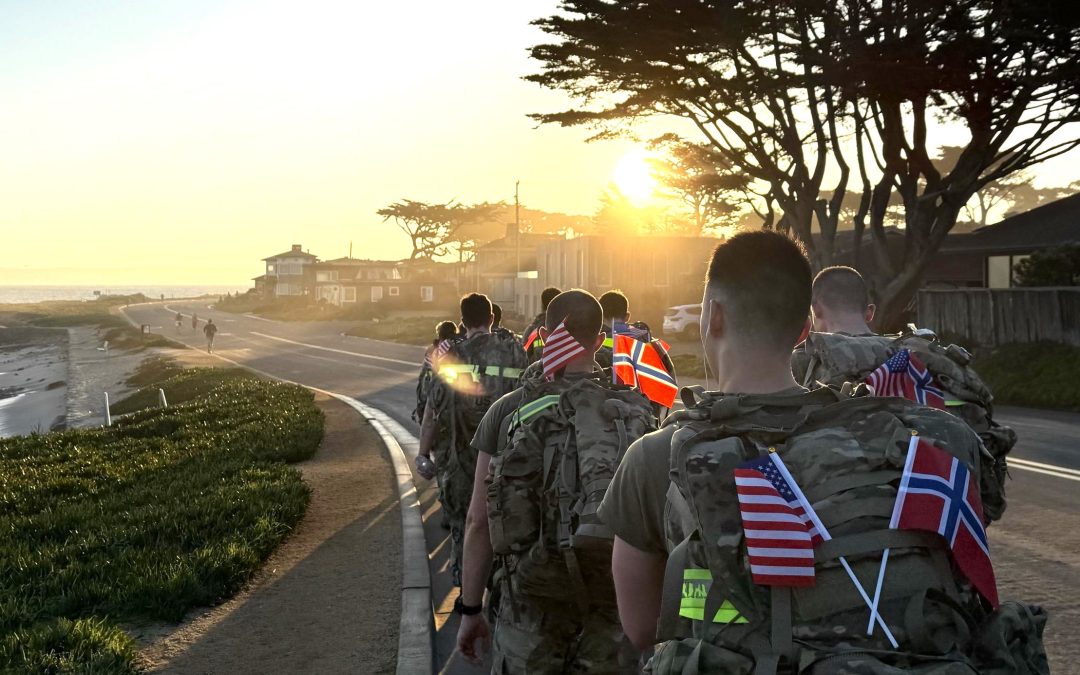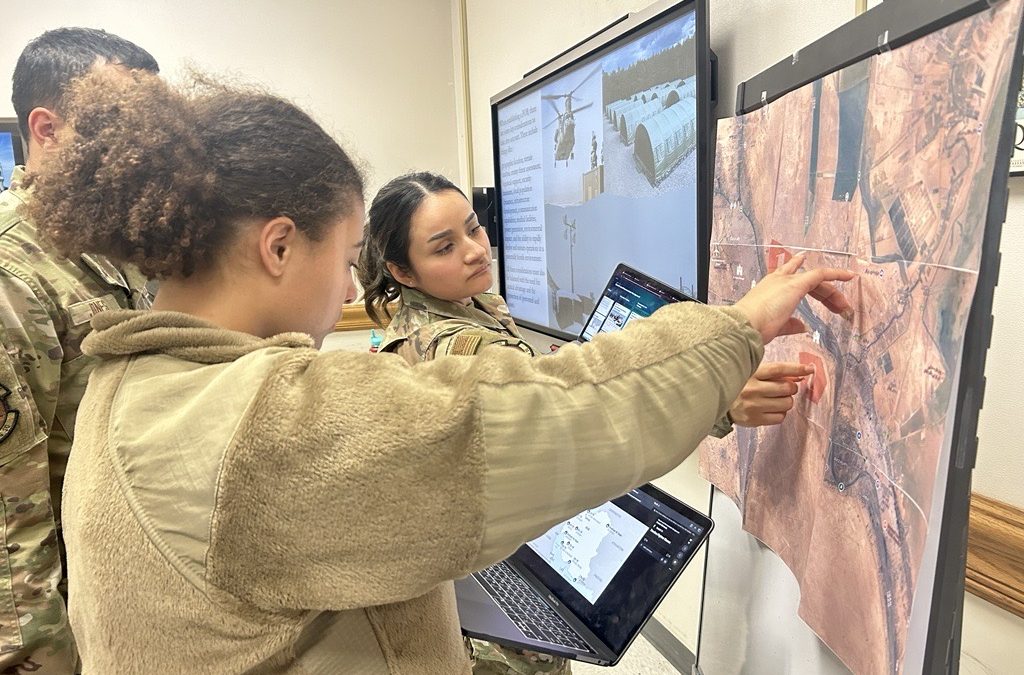By Natela Cutter
DLIFLC Public Affairs

Lt. Gen. Michael Lundy, commanding general of the U.S. Army Combined Arms Center at Fort Leavenworth, Kansas, visited the Defense Language Institute Foreign Language Center in Monterey, California, April 13, to see first-hand the Army’s foreign language training mission. Lundy spent time observing classes in Russian, French and Spanish and spoke to students of all four branches of the services about the importance of their studies to national security. During a working lunch, Lundy spoke with DLIFLC civilian and military leadership to express his views about the importance of their contributions to the training of the future force. He also addressed DLIFLC Army cadre later in the day, reminding them of their vital role in the development of young Soldiers. (Photo by Amber K. Whittington, DLIFLC Public Affairs)
MONTEREY, Calif. – Lt. Gen. Michael Lundy, commanding general of the U.S. Army Combined Arms Center at Fort Leavenworth, Kansas, visited the Defense Language Institute Foreign Language Center in Monterey, California April 13 to see first-hand the Army’s foreign language training mission.
“You can’t look at the size of an organization to determine its importance. You have to look at the size of its impact,” said Lundy in an interview. “When you look at the number of Soldiers, Sailors, Airmen and Marines who walk out of these gates with the skills that they have, the things they are going to go out and do will directly inform national-level decisions.”
Lundy spent time observing classes in Russian, French and Spanish and spoke to students, of all four branches of the service, about the importance of their studies to national security. “When I spoke to the students, none of them said it was easy,” said Lundy, exiting a Russian language classroom where students were a bit more than half way through their 47-week course.
During a working lunch with the DLIFLC Provost, management and the eight deans of the 17 languages currently taught at the institute, Lundy wanted to specifically address them to explain the significance of their work within the larger context of the military and national defense.

Lt. Gen. Michael Lundy, commanding general of the U.S. Army Combined Arms Center at Fort Leavenworth, Kansas, visited the Defense Language Institute Foreign Language Center in Monterey, California, April 13, to see first-hand the Army’s foreign language training mission. Lundy spent time observing classes in Russian, French and Spanish and spoke to students of all four branches of the services about the importance of their studies to national security. During a working lunch, Lundy spoke with DLIFLC civilian and military leadership to express his views about the importance of their contributions to the training of the future force. He also addressed DLIFLC Army cadre later in the day, reminding them of their vital role in the development of young Soldiers. (Photo by Amber K. Whittington)
“One of the main points I wanted to drive home is the impact they (instructors) have on our nation….it is not just our Army or our Joint Force. When you think about the importance of our Soldiers out there, one of the key things we have to understand … is language and culture …in this very complex world we are in,” he said, explaining that DLIFLC instructors, civilian and military leadership play an invaluable role in producing qualified linguists.
“You are doing a terrific job and you make me proud. I am not going to get down in your business and run Arabic School III,” said Lundy with a chuckle, as the staff laughed wholeheartedly.
Lundy applauded the effort that some 1,600 instructors put into teaching foreign language and culture to all four branches of the services, year round, five days a week, six to seven hours per day.
“We look at the importance of that level of instruction and how they (instructors) put a little bit of themselves in every one of the Soldiers, Sailors, Airmen, and Maines that leave here. That is a big part of being this faculty,” said Lundy, stressing that people are the most important factor in every successful organization.

Lt. Gen. Michael Lundy, commanding general of the U.S. Army Combined Arms Center at Fort Leavenworth, Kansas, visited the Defense Language Institute Foreign Language Center in Monterey, California, April 13, to see first-hand the Army’s foreign language training mission. Lundy spent time observing classes in Russian, French and Spanish and spoke to students of all four branches of the services about the importance of their studies to national security. During a working lunch, Lundy spoke with DLIFLC civilian and military leadership to express his views about the importance of their contributions to the training of the future force. He also addressed DLIFLC Army cadre later in the day, reminding them of their vital role in the development of young Soldiers. (Photo by Amber K. Whittington)
Lundy also addressed Army military cadre toward the end of the day, stressing the importance of their leadership roles in creating strong and agile leaders for tomorrows force.
DLIFLC graduates about 2,000 foreign language students per year. Most students will become cryptologic analysts and work for their respective services. A number of students will go on to become Foreign Area Officers and will work in U.S. Embassies around the world in diplomatic capacities.
The Institute is a part of the Combined Arms Center which synchronizes 37 U.S. Army schools that train more than 350,000 students annually, including nearly 10,000 students from 86 separate nations and more than 10,000 Sailors, Airmen, and Marines from the Joint Force.




